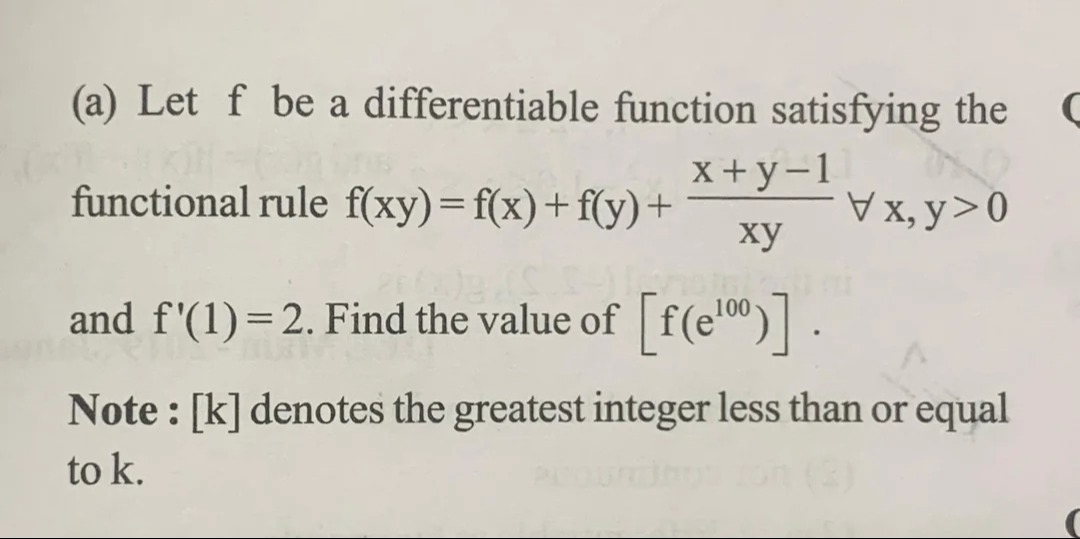Question
Question: Let f be a differentiable function satisfying the functional rule f(xy) = f(x) + f(y) + $\frac{x+y-...
Let f be a differentiable function satisfying the functional rule
f(xy) = f(x) + f(y) + xyx+y−1 ∀x, y>0
and f'(1) = 2. Find the value of [f(e100)] .
Note : [k] denotes the greatest integer less than or equal to k.

Answer
99
Explanation
Solution
-
Given:
f(xy)=f(x)+f(y)+xyx+y−1 for all x,y>0 and f′(1)=2.
-
Finding f(1):
Set y=1:
f(x)=f(x)+f(1)+xx+1−1⟹f(1)+xx=0⟹f(1)+1=0.Thus, f(1)=−1.
-
Guessing a form:
Assume:
f(x)=clnx+u(x).We desire u(x) such that the extra term produces xyx+y−1.
Guess u(x)=−x1. Then,
f(x)=clnx−x1. -
Verification:
Compute f(xy)=cln(xy)−xy1=clnx+clny−xy1.
Also,
f(x)+f(y)=clnx−x1+clny−y1.Then,
f(x)+f(y)+xyx+y−1=clnx+clny−(x1+y1)+xyx+y−1.Since
xyx+y−1−(x1+y1)=−xy1,we get
f(x)+f(y)+xyx+y−1=clnx+clny−xy1,which matches f(xy).
-
Determine c:
Differentiate:
f′(x)=xc+x21.At x=1,
f′(1)=c+1=2⟹c=1. -
Resulting Function:
f(x)=lnx−x1. -
Compute f(e100):
f(e100)=ln(e100)−e1001=100−e1001.Since e1001 is positive yet extremely small,
100−e1001<100,so the greatest integer less than or equal to f(e100) is 99.
